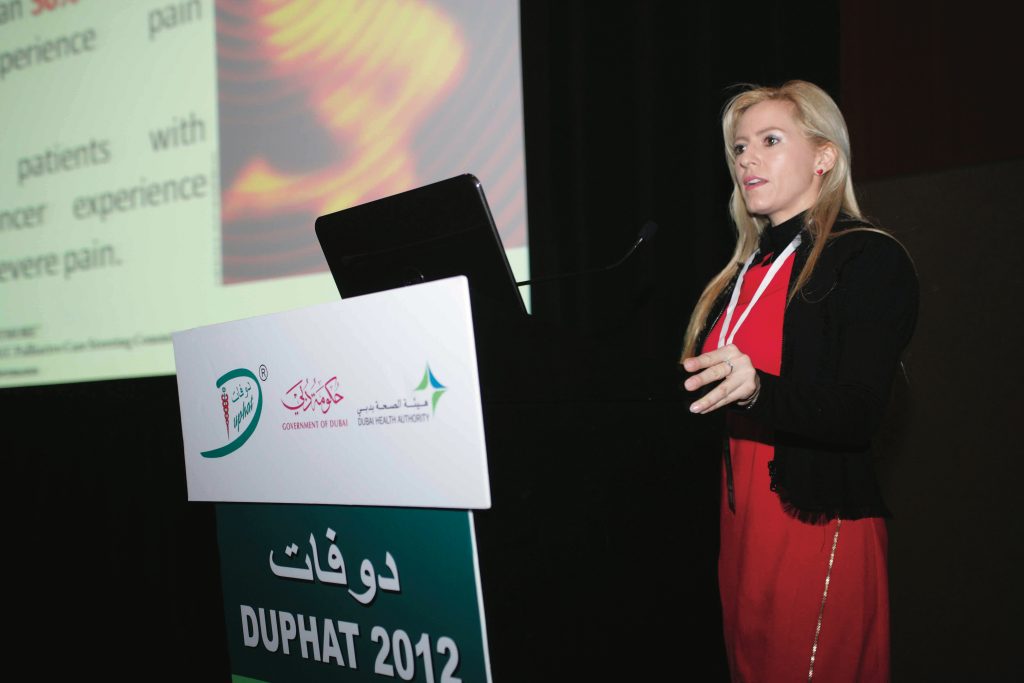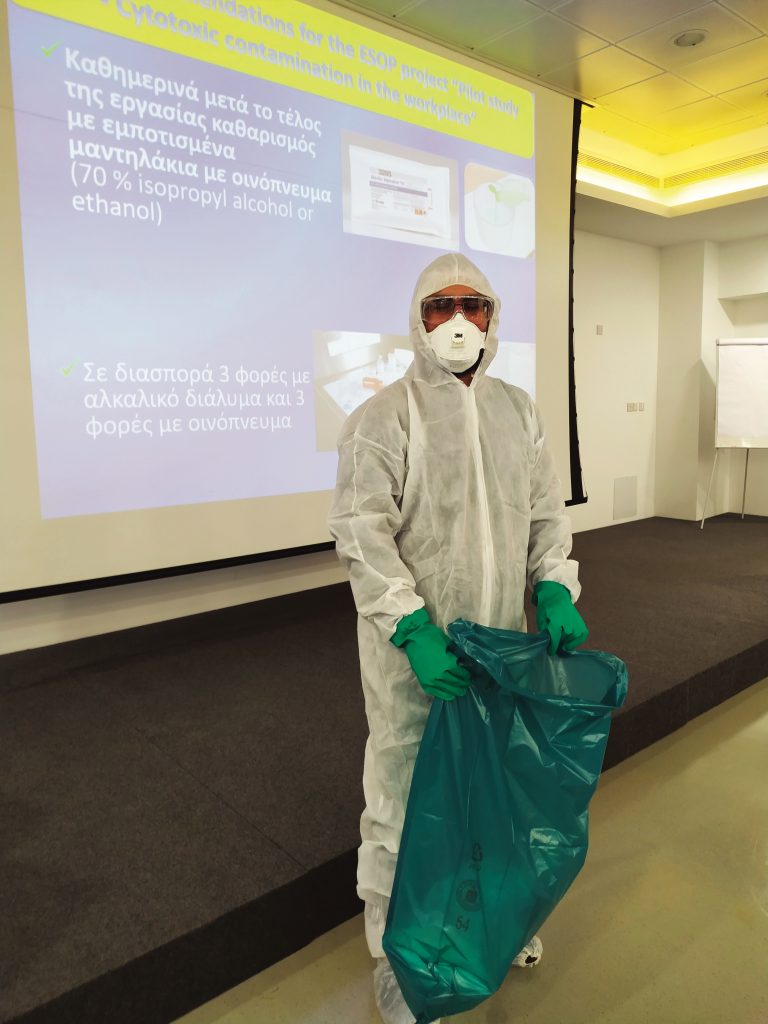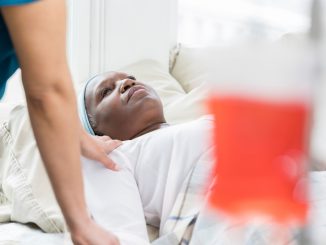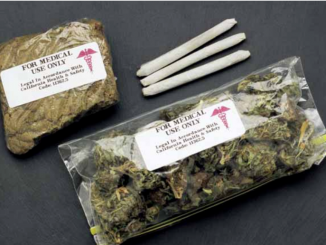It’s about getting the right drug, to the right patient, at the right time, in the right amount, with the right patient information on how, when and why to use it. Peter McIntyre talks to the woman who built up the clinical pharmacy service at Cyprus’s first dedicated cancer centre.
When the Bank of Cyprus Oncology Centre first opened its doors to patients in 1998, Stavroula Theophanous-Kitiri was the sole pharmacist. Under her guidance, the pharmacy service has grown to a department of nine, comprising six pharmacists, one pharmacy technician and two pharmacy assistants.
This remarkable expansion reflects in part the rapid growth in the variety of drugs used to treat cancer over the past twenty years. But it also speaks to her success in demonstrating the value patients derive from well-organised pharmacy services that play a strong role within multidisciplinary teams.
At a day-to-day level, this means working with physicians, other health professionals and patients to enhance the overall quality of care by improving patients’ medication adherence, medication management, medication safety and drug interaction issues. This applies not just to anti-cancer agents, but also to medications taken to treat side effects and relieve pain and support patients’ mental health and wellbeing.

At a strategic level, it means collaborating with other team members to devise the policies and systems to ensure this work runs smoothly, and guard against mistakes and oversights. A good clinical pharmacy service also delivers an economic benefit for its hospital.
A top quality cancer pharmacy service
The Bank of Cyprus Oncology Centre in Nicosia is run on a not-for-profit basis by a Board of Trustees that includes Government and Bank of Cyprus representatives. The Bank paid for the building and funds capital expenditure; the Government funds operational expenses. It has 34 in-patient beds and dispenses 250 prescriptions a day for in- and outpatients.
For patients, the opening of the new hospital offered the first opportunity to be treated, for free, at a dedicated cancer centre. For Theophanous-Kitiri, it offered the rare opportunity to organise an oncology pharmacy service from scratch, and she was determined to do it to the highest standards.
In collaboration with oncologists, she developed chemotherapy protocols for each type of cancer, including information about doses, pre-medication, appropriate diluents, stability and drugs (such as antiemetics) for the patient to take at home. She introduced a procedure to prevent wastage by fine-tuning prescriptions to fit better with the vial sizes in which drugs are supplied – saving her hospital more than €700,000 in 2018 alone.
In a busy oncology centre, great care has to be taken to avoid double dispensing or other errors. Theophanous-Kitiri was involved in the development of the pharmacy software, Powerpro, allowing dispensing pharmacists to check a patient’s drug history and to double-check prescriptions.
“Every time a patient attends our pharmacy we check their medication history, and in this way we find near misses that could lead to medication errors.” Pharmacists also correct errors relating to sound-alike look-alike drugs (SALAD), such as prescriptions made out to anastrozole instead of letrozole, or vemurafenib instead of dabrafenib.
Theophanous-Kitiri joined ward rounds, talking to medical staff and to patients, recommending modified doses where there was impaired renal or hepatic function, adverse effects of drugs, or incompatibilities and drug interactions.
“Clinical pharmacists should be placed on wards, and all hospitals should have at least one in order to influence prescribing, as they have the appropriate knowledge about therapeutics and are in regular contact with prescribers,” she says. As she points out, this specialist knowledge is increasingly important as new chemotherapy, targeted therapy and immunotherapy come into daily use.
Clinical pharmacists check patients’ charts, collaborate with other staff, and propose changes in treatments based on pharmacokinetics. “In this way, medication errors are minimised and patient safety is increased.”
Theophanous-Kitiri encourages her students to spend time on the ward. She teaches medical students of the University of Cyprus and St George’s Medical school and serves as a trainer and clinical mentor for pharmacists of Frederick University School of Pharmacy and pharmacy technician students of KES College. Clinical pharmacy students spend a week on ward rounds with her and present patient case studies.
Her own time within the hospital is increasingly taken up working at a governance level. She is part of the decision-making process on a number of significant committees, including those covering chemotherapy, health and safety, pharmacy and therapeutics, clinical governance, infection control and palliative care. She is a strong believer in accreditation as the “key to focusing on quality and improvement”. The Bank of Cyprus Oncology Centre was the first medical centre in Greece or Cyprus to be accredited by CHKS-health and care standards for the quality of its service, and has kept this accreditation since 2007.
She also devotes a lot of time to pursuing her special interests in safe handling of cytotoxic drugs, patient safety, medication errors, pain management and end-of-life care, working at a national and international level, passing on her expertise through lectures and training.
Safety first
Theophanous-Kitiri teaches in Cyprus and abroad about patient and staff safety, and trains staff in the use of protective procedures and equipment when working with CMR (cytotoxic, mutagenic and reproductive) drugs. “All these chemotherapy drugs that we use in oncology may have an adverse effect on staff if they are not handled with care.”
Working with the European Society of Oncology Pharmacy (ESOP), she helped develop a ‘spill kit’ to be kept wherever cytotoxic drugs are handled, and she provides information in Greek for the ESOP homepage.
Patient safety is a particular concern, particularly now that an increasing number of drugs are dispensed for outpatients to take orally at home. The hospital sends patients home with clear printed instructions about how and when to take their medication. This includes warnings about possible drug–drug and drug–food interactions (such as drugs that should not be taken with grapefruit juice or milk).
Oral chemotherapy needs to be carefully handled, especially as it remains in body fluids for approximately 48 hours. Patients are advised to wash their clothes separately from those of the family, to flush the toilet twice and to follow instructions for handling any contamination.
They are also warned not to crush or dissolve chemotherapy tablets, but to swallow them whole, to ensure compliance and avoid cross-contamination. She recalls one patient who dissolved her capecitabine tablet in water and put the cup in the dishwasher, without realising that this could cross-contaminate other crockery.
Pain management
Theophanous-Kitiri is passionate about improving pain control for patients with cancer. “A lot of doctors avoid prescribing morphine because of fear of patients becoming addicted. This is called opiophobia, and it contributes to the under-treatment of pain,” she says. “Many patients die with moderate or severe pain, and a major part of the population never gets the pain relief that is needed. We know that morphine is the cornerstone for relief of moderate to severe cancer pain, and all patients should have access if they need it.”
She conducted a survey on the consumption of opioid drugs at the Bank of Cyprus Oncology Centre and in 31 hospitals in eight countries. The findings, which she presented in Cyprus and internationally, showed that opiate consumption (total morphine-equivalence per person) is low in many countries, and identified the barriers to the effective management of cancer pain.
Theophanous-Kitiri underlines the difference between addiction, tolerance and being physically dependent on opioids. She teaches the catch-up technique, where patients start on a low dose of morphine that is gradually increased and the dosage is carefully monitored.
“We monitor our patients closely. We give them pain diaries where they record their pain scale and the dose they take each time. We check, evaluate, and modify their doses regularly. This is very important because nobody should die or suffer with severe pain. Pain relief is a human right and we have to respect it.”
There is also ‘invisible pain’. “If you go below the tip of the iceberg you see that the patient may suffer social concerns, psychological and spiritual issues, and end-of-life patients may have depression, anxiety or fear. This kind of suffering is often not talked about.”
The Bank of Cyprus Oncology Centre has created a multiprofessional support team that includes clinical pharmacists, doctors, nurses, home care nurses, physiotherapists, social workers, psychologists and a spiritual counsellor. Father Marios from the nearby Greek Orthodox Church comes to the hospital weekly to offer spiritual counselling.
Europe-wide networking
Theophanous-Kitiri found strong European support in her drive for quality. She met Klaus Meier, President and founder of the European Society for Oncology Pharmacy in 2000, and became a delegate member of ESOP from 2000 to 2010, before serving as Vice-President from 2010 to 2016. Since 2016 she has been the ESOP Board member with a special brief for pain management and palliative care.
Klaus Meier was the inspiration behind the development of ESOP Quality Standards for the Oncology Pharmacy Service (QuapoS), now in its sixth edition. Theophanous-Kitiri was involved from the beginning and, in 2018, coordinated the chapter on pharmaceutical care, which she presented at the QuapoS conference in Brussels. She personally translated QuapoS into Greek so it could be posted on www.esop.eu, and presented the QuapoS standards at conferences in Cyprus and Greece.
Theophanous-Kitiri has published several articles in the European Journal of Oncology Pharmacy on clinical pharmacy interventions in oncology, spillages, and occupational exposure to cytotoxic drugs. In 2007 she co-authored a paper on the risks from contaminated packaging when cytotoxic drugs are sent to hospitals. In 2017, ESOP gained recognition from the European Commission to promote the ‘Yellow Hand’ warning symbol, where cytotoxic drugs are stored or handled.
In 2004, Theophanous-Kitiri spent a month at the Beatson Oncology Centre in Glasgow and since then has visited hospitals in Luxembourg, Hamburg and Prague. She conducted a survey of 27 hospitals from 21 European countries about the activities and structures of Pharmacy and Therapeutics Committees. “I feel I have greatly benefited from all this networking”, she says. “All the different systems I have seen, I try to implement in my hospital.”
A habit of hard work
Hard work and efficiency have been hallmarks of Theophanous-Kitiri’s character from an early age. Born in Athens, where her parents were studying – her father to become a surgeon and her mother an English teacher – the family returned home to Cyprus when Stavroula was five years old. While at school, she often accompanied her father Michalis Theophanous to hospital and watched operations. She wanted to follow in his footsteps.

Her parents were concerned that a spinal operation she underwent at the age of 11 might prevent her spending hours in an operating theatre, and encouraged her to try something else. The young Stavroula decided to study pharmacy, as she loved chemistry and biology. She excelled in her final school exams and in the highly competitive exams to study pharmacy at the University of Athens. “I used to study a lot. When you are organised and under pressure, you force yourself to be more efficient,” she says. Her dream was always to work in a hospital and help people. She followed her Bachelor degree in Pharmacy Science, with a Master’s Degree in Clinical Pharmacy, opening the path to the hospital job she cherished. “I love working with patients and dealing with their medications to ensure that the right drug is prescribed for the right patient at the right time in the right amounts, and that the patient knows how, when and why to use it.”
“I used to study a lot. When you are organised and under pressure, you force yourself to be more efficient”
Her Master’s research focused on the use of amiodarone for patients with abnormal heart rhythms, but after exposure to various specialities in many of the Greek capital’s most prestigious hospitals, she found her vocation. “I liked oncology. I found it very interesting and pharmacists can play a significant role,” she says. “Oncology Pharmacy is an amazing job and a great profession.”
Athens was an exciting city in which to be a student, and here at the age of 18 she met her husband to be, Evros Kitiris, then a medical student also from Cyprus. He is now a surgeon with special interest in breast and thyroid surgery, and one of the cofounders of the Breast Centre of Cyprus. “I feel blessed for my husband, as he has always been a great support for me,” she says.
The couple have three daughters, aged 18, 13 and 11. The oldest Mikaella is in her final school year and planning to study medicine. Efficiency is now essential to balancing health, family and work.
“I want to give my kids the same energy that I’m giving to my work. When I am with my kids, I put everything away and I am fully with them as they deserve my time. I have a strong relationship with my daughters and I feel blessed for my family that is the most important thing in my life.”
But, as she points out, keeping up to speed with a fast changing therapeutic area demands life-long learning, which means using free time to study, so that she can implement best practice. “I give myself deadlines, which motivate me to finish faster,” she says. “I like being organised as I think this is the key for achieving [my] goal.”





